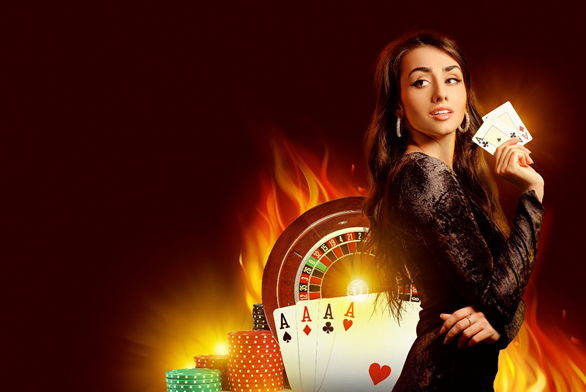Untold stories – women in the casino
Up until the middle of the Second World War, casinos and gambling houses were heavily male dominated, in fact, before this, gambling was outlawed, and despite having been a concept that dates back almost 4,500 years, the 1700s gambling houses became a growing concern, with many games being made illegal.
These laws didn’t seem to affect the upper class and upper-middle class men of the time, but for women, it was not just unacceptable, but it was widely suggested that participating in the games would affect their ability to produce healthy children.
It’s clear that this theory was debunked, and with what seems like a pretty even playing field for all genders now – we’re left with the question: how has gambling changed for women throughout the years?
Read on to find out.
Table of Contents
Faro’s daughters – 1700s
In the 1700s, a group of aristocratic women – Lady Buckinghamshire, Lady Sarah Archer, Mrs Sturt, Mrs Concannon, and Lady Elizabeth Luttrell – hosted Faro tables late at night, providing a place for other women to gather, gamble, and discuss social and political matters. The group were soon nicknamed ‘Faro’s Daughters’, and were branded as a disgrace to human nature. Their participation in ‘male’ sports such as horseback riding and gaming was seen as a danger to the boundaries between classes, men and women, and a disruption to social order and political power.
The Wild West – 1870s
Alice Ivers Duffield Tubbs Huckert spent her time playing Poker as a way to make ends meet after the death of her husband. In America, at the time, women were allowed to participate in the games, although their presence was rare. Her skill for counting cards and figuring out odds gave her the nickname ‘Poker Alice’, winning up to $6,000 on a good night. Alice knew that this business, for a woman especially, was dangerous, so carried around a .38 revolver wherever she went.
In 1910, she opened her own casino called ‘Poker’s Palace’, and by the time she died in 1930, she had won over a quarter of a million dollars from the game, had three different husbands, and shot two men with her revolver.
The Second World War – 1939
WWII meant that most male workers had been called to fight, leaving the casinos in Nevada depleted. In 1943, the first advertisement for a female croupier was placed in The Nevada State Journal, which actually ended up attracting more males to the casinos.
In 1971, Las Vegas followed suit – the Silver Slipper hired their first female cards dealer, with the Union Plaza doing the same later that year.
Deborah Nutton
Nutton was the first Craps dealer on the Strip in the 70s, and despite being told “bending over the game would ruin your ovaries”, her nursing degree stated otherwise, so she continued to pursue the career. By the time she was 25, she was the boss of the dice pit at the Sands, but still spent her lunch breaks hiding in the women’s toilets by herself. Nutton fully embraced her femineity, and eventually became Executive Vice President of Casino Operations at the Wynn Casino.
Delaney Gordon
The first female dice dealer in the UK, Delaney Gordon, saw a lot of adversity when she first started her role. Now, Gordon is the General Manager at the Piccadilly Casino in London.
World Series of Poker (WSOP) – 1977
In 1997, the world’s first WSOP for women was hosted, and by 1991, the event received 110 applicants, with this number increasing year on year. As the event grew more popular, however, some men would try and crash the tournament, citing anti-discrimination laws. It remained clear that women just needed a place where they could play Poker as equals, free from discrimination.
Online casinos
In the mid-1990s, online casinos launched, which produced some data that rose questions as to why there was a 50/50 gender split on all games online, and not in land-based casinos. Women were given an equal chance to showcase their skills, and outside of this, confidence began to grow.
It would take a few more years until women could step away from the stigma and have their gaming talents recognised. In 2013, not one male entered the World Series of Poker for women – a revelation for women in support of the tournament.
But the question remains – do women really need their own event, when they’re clearly capable of competing (and winning) against the opposite gender? Hopefully the future will hold even more equality, especially for a game that’s based so much on luck and fairness.

